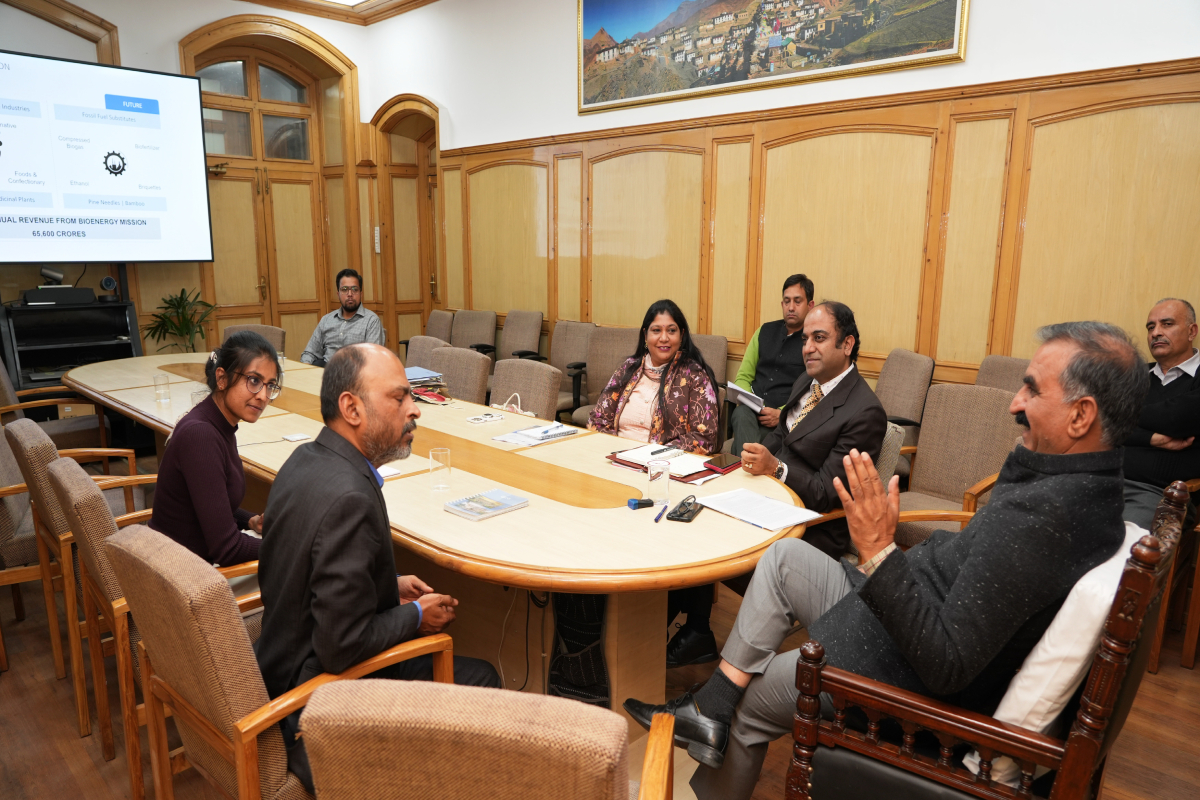The Himachal Pradesh government is all set to partner with the Indian School of Business (ISB) to provide policy inputs and research support to the emerging bio-energy sector.
This was stated by Chief Minister Thakur Sukhvinder Singh Sukhu while presiding over a meeting with the representatives of ISB on late Friday evening.
Advertisement
The state government would initiate a pilot project for bio-energy production from pine needles and bamboo as the State is blessed with an enormous wealth of conifer forests and has a high potential for bamboo production, said the Chief Minister. The project would involve the local community and increase their income, he added.
“Many sectors like thermal power, cement and steel were exploring fossil fuel substitutes to reduce emissions. Thus, the scope can be expanded to include fuel briquettes made from pine needles as potential substitutes, which has the advantage of much higher calorific value and this would also pave the way for strengthening the rural economy,” said Sukhu.
ISB would provide the business model and technology to make this project a success, with the assistance and cooperation of the state government, said the Chief Minister, adding that ISB would also ensure adequate market linkage.
As the government mandate for ethanol blending in petrol has increased from 10 percent to 20 percent with an ambition to achieve the target of ‘Green Energy State’ by 2025, the ISB would also undertake the task of making ethanol, compressed biogas and biofertilizer from bamboo, he said. The residue of ethanol production from bamboo serves as feedstock for the production of compressed biogas and bio-fertilizer in large quantities, he added.
Emphasizing the importance of community ownership of forests, the Chief Minister said that it provides incentives for communities to protect, and manage them sustainably.
He further said that community ownership of forest land is associated with greater social responsibility and increased incentives for forest protection.
This would attract industrial partners and private investments, as it improves environmental, social, and governance issues, he added.
Indian School of Business, Executive Director, Prof. Ashwini Chhatre and Policy Director, Dr. Aarushi Jain elaborated on the various projects undertaken by the ISB.











